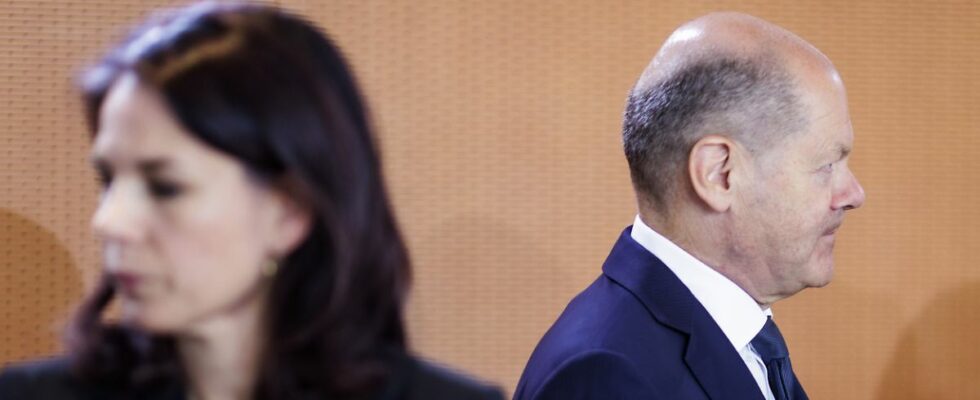EU-Russia sanctions slowed down
Baerbock accuses Chancellor’s Office of damaging its image
14.06.2024, 05:16
Listen to article
This audio version was artificially generated. More info | Send feedback
The latest EU sanctions package against Russia threatens to fail due to German concerns. This is causing anger within the federal government. Foreign Minister Baerbock accuses the Chancellery of damaging the image of Berlin’s Russia policy.
There is a dispute within the federal government over Germany’s position on the EU’s planned new Russia sanctions. According to information from the German Press Agency, the Foreign Office now sees the Chancellor’s Office’s reservations about the sanctions package as problematic and damaging to its image. The background to this is that Germany was recently left alone with this. The Foreign Office said ahead of new talks in Brussels on Friday that the Green Foreign Minister Annalena Baerbock had worked intensively over the past two years to restore the trust lost among European partners due to the old Russia policy. This trust must not be gambled away again by the SPD-led Chancellor’s Office.
It had previously become known that the permanent representative of the Federal Republic to the EU had not received permission from Berlin to agree to the EU’s next package of sanctions against Russia until recently. According to diplomats in Brussels, German concerns and requests for changes were a key reason why the negotiations had not yet been concluded. Recently, it felt as if Germany was the new Hungary, an EU official told dpa, alluding to the fact that Prime Minister Viktor Orban’s Budapest government had repeatedly delayed decisions on sanctions against Russia in the past.
Sanctions evasion in sight
It was originally planned that an agreement on the new sanctions package should have been reached by the start of the G7 summit of the leading democratic industrial nations on Thursday. Chancellor Olaf Scholz also attended the meeting. Now a political agreement in Brussels can only be reached this Friday at the earliest.
The planned new EU sanctions are intended to combat the circumvention of existing sanctions in particular. This means, for example, that Russia’s arms industry can still use Western technology to produce weapons for the war against Ukraine. In addition, there are plans to impose tough EU sanctions for the first time on Russia’s billion-dollar liquefied natural gas (LNG) business. According to EU diplomats, Germany’s reservations about the plans relate primarily to measures that are intended to make it more difficult to circumvent EU sanctions. According to them, the German government demanded, among other things, that companies should not be obliged to ensure that trading partners comply with EU sanctions rules themselves.
Germany stands alone
The Foreign Office said that the concerns could not be dismissed in principle. At the same time, it must be recognized that the vast majority of other EU states do not see any unacceptable problems.
A spokesman for the Federal Republic’s permanent representation to the EU declined to comment on the negotiations when asked by the dpa on Thursday. He pointed out that the discussions among the member states were confidential.

